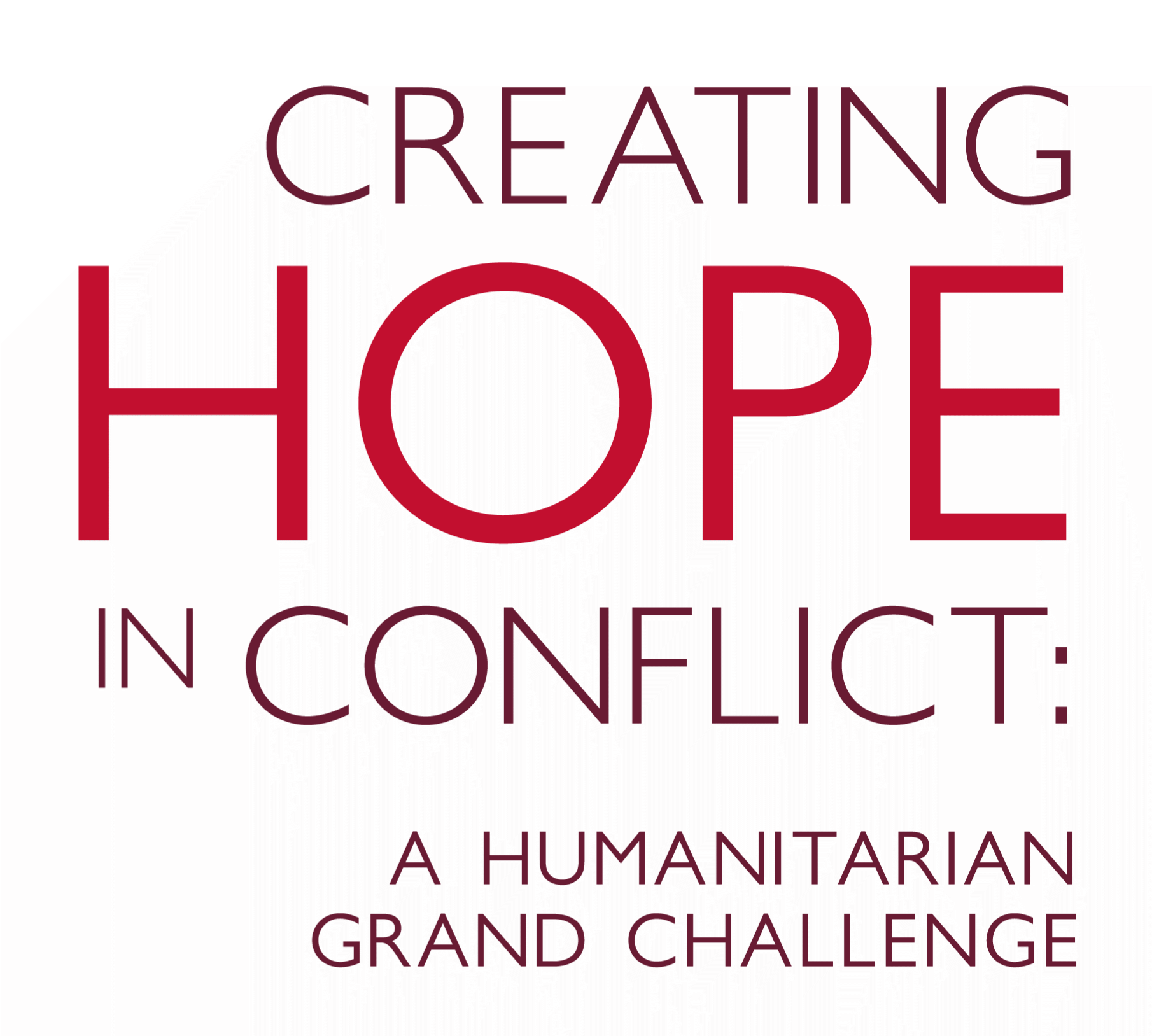Since 2018, Creating Hope in Conflict: A Humanitarian Grand Challenge has provided proof of concept (Seed) and transition to scale (TTS) funding to 75 innovations intended for use with conflict-affected populations in over 20 countries. We embarked upon a learning journey to better understand how innovative products and processes could be tested and pointed towards scale in humanitarian settings, in order to help solve some of the most complex problems and barriers within the humanitarian sector.
This post is one of many SEED Stories: a series of blogs reflecting on what HGC-funded innovators have achieved and key lessons learned during the duration of their seed grant periods.

Sun Buckets: Collecting, Storing, and Using Solar Thermal Energy by People in Conflict Regions
Kakuma Refugee Camp, host to over 200,000¹ refugees and Internally Displaced Persons (IDPs), is located in Turkana County, in Northern Kenya where a large portion of the population is unable to access sufficient, sustainable energy.² Communities in the camp often burn firewood or charcoal for cooking and lighting. People are forced to seek firewood, contributing to deforestation, and are exposed to harmful toxins. Women travel at length to remote areas to gather firewood and experience a heightened risk of sexual and gender-based violence in these remote areas.
How Sun Buckets Tackled this Challenge
Sun Buckets offers an innovative approach to tackle the unmet energy needs of refugees and IDPs in Kakuma, in turn addressing the multifold environmental, health, and social effects of energy impoverishment. They offer the first and only commercially available solar and thermal energy cooking solution that is safe, portable, and enables renewable solar energy to be collected and stored for use, even after dark.
To pilot their innovation, Sun Buckets received a CAD $250,000 Seed grant from CHIC, with a goal of testing the performance of their product in a humanitarian setting and to better understand their adoption and usability. The funding enabled Sun Buckets to conduct field trials of their technology in the UNHCR’s Kakuma refugee camp in Kenya.
By the end of the CHIC funding period, 31 Sun Buckets were deployed across seven cooking centres in the camp and host community, providing 2,406 refugees across 561 households with access to a safer, healthier cooking option. Users demonstrated widespread satisfaction with the new clean and affordable cooking model in response to a feedback survey, and a total of 2,275 (94.6%) of users reported using the Sun Bucket for cooking at least three times per week. Widespread use could have the potential to reduce users’ exposure to harmful toxins from burning firewood and charcoal, bringing many health and environmental benefits.
Through their innovative “pay-as-you-go” (PAYGO) financing model, which relies on credit arrangements that allow the continued supply of solar lighting components without upfront payment requirements, Sun Buckets has also developed an affordable and sustainable market-based energy access model.
Partnerships Built
During their pilot phase, Sun Buckets fostered collaborative links with humanitarian partners in Kakuma including UNHCR, WFP, and LOKADO. Sun Buckets has signed a Memorandum of Understanding with LOKADO, one of UNHCR’s local Kakuma-based implementation partners, for the distribution of Sun Buckets throughout the camp. Sun Buckets is also in conversation with UNHCR regarding product awareness within the camp and potential long-term collaboration once Sun Buckets can standardize its manufacturing process locally.
Beyond Kenya, Sun Buckets has also collaborated with Indian Oil Corporation Ltd. (IOC). IOC piloted Sun Buckets’ innovation, with Schneider Electric providing technical support. As part of the IOC contract, Sun Buckets deployed 10 Sun Buckets with five parabolic charging stations in Leh, Ladakh and Udaipur, Rajasthan in India.
Lessons Learned
- Encouraging large-scale shifts away from harmful cooking practices demands significant community-level awareness-building, behaviour-change communication, and user training in local languages;
- Partnerships with other companies producing affordable clean-energy alternatives is needed to overcome the limits of sunshine-dependent solar-powered technologies;
- Coordination with humanitarian agencies is required to reduce competition between private markets and humanitarian aid delivery models.
What’s Next?
After achieving proof of concept for their innovation, Sun Buckets was selected for follow-on “graduation” funding through CHIC’s transition to scale program. With the receipt of an additional CAD $300,000 in TTS1 grant funding, Sun Buckets aimed to standardize their manufacturing process locally and build a strong business case for long-term adoption. They accomplished this by manufacturing an additional 75 Sun Buckets bundled with solar home lighting systems to distribute in the Kakuma Refugee Camp via their successful PAYGO model. With this approach, the company generated a consistent revenue stream that will pave the way for financial sustainability for the company, creating a foundation for further scaling of the innovation into other conflict-affected regions.
Sun Buckets has signed and MOU with the Rotary Club of London Hyde Park and St. Thomas (Canada), and working in collaboration with the UNHCR in Kakuma and Danish refugee council to support the most vulnerable households in refugee camps in Kakuma and across Kenya. So far Sun Buckets has attracted a lot of interest from clean energy stakeholders in the East and Central Africa region as well as in Latin Ameri
¹ https://data.unhcr.org/en/country/ken/796
² https://cra.go.ke/wp-content/uploads/2022/08/State-of-Inequality-in-Kenya-Report.pdf
